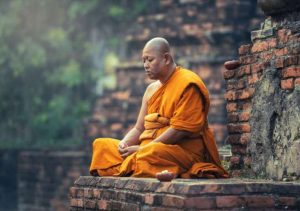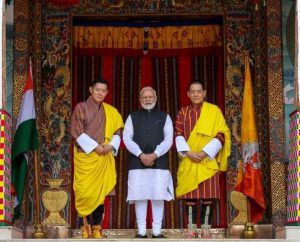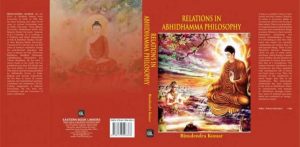A grouping of 15 Buddhist monastic organizations in the Chittagong Hill Tracts (CHT) of Bangladesh have for the first time decided not to celebrate the traditional Kathin Civar Dan (Kathina robe-offering ceremony), a major Buddhist festival, this year, because of ongoing civil security concerns. The ceremony, which was to take place for a month across various Buddhist temples, was scheduled to begin on 18 October.
The announcement was made during a media conference on 6 October at Maitri Buddhist Temple in Rangamati District. The monks cited the deteriorating security situation in the CHT as the primary reason.* Rangamati Rajban Vihar, the largest Buddhist monastery in the CHT, expressed support for the decision.
The Kathina robe-offering festival is a significant Buddhist event that is held at the conclusion of the monastic three-month rains retreat, which ends with the Pavarana ceremony. This traditional occasion, rooted in ancient Buddhist custom, is mainly found in the Theravada Buddhist tradition. Today, Kathina is a large annual celebration in which Buddhists come together to celebrate by giving monastics gifts such as robes and alms.
The president of the Parbatya Bhikkhu Sangha, Venerable Shraddhalankar Mahathera, declared in a written statement that the festival would not be held at any temples in the area due to the current situation of unrest and uncertainty.
“Under these circumstances, we are compelled to take a unanimous decision not to observe [the] Kathin Civar Dan program this year,” said Ven. Shraddhalankar. (New Age)

Ven. Shraddhalankar reported that between 18–20 September, and on 1 October, hundreds of shops belonging to indigenous communities had been vandalized, looted, and set ablaze in Khagrachari and Rangamati districts. He added that Bengali settlers had also targeted Buddhist temples, vandalizing Buddha statues and looting donation boxes. Four indigenous people were killed in those incidents and many others were injured.
“We could not help but feel very insecure after targeted attacks were made on homes and religious temples of ethnic minorities while section 144 was in place,” said Ven. Prajna Jyoti Bhikkhu, a monk speaking at the press conference. (UCA News)
The violence began in Khagrachari District on 18 September, following the murder of Muslim youth Mamun, who was suspected of motorcycle theft. However, indigenous people claimed they had no involvement in the murder. The violence then spread to Rangamati District.
The monks further alleged that law enforcement agencies were involved in the acts of violence in the CHT, both directly and indirectly. They asserted that no prosecutions were made in the wake of the attacks, despite the formation of official investigation committees.

Concerned by the monks’ decision, the deputy commissioner of Rangamati District, Mosharraf Hossain Khan, convened a meeting on 7 October, urging them to reconsider, stating that the law-and-order situation in the CHT had resturned to normal. However, the monks remained determined to halt the festival.
* Indigenous Communities in Bangladesh’s Chittagong Hill Tracts Flee Communal Violence (BDG)
See more
Buddhist bhikkhu sangha announces boycotting ‘kothin chibor dan’ (Prothom ALo)
Security concern: Buddhists won’t observe major religious event in CHT (The Daily Star)
Monks declare not to observe Kathin Chibordan in CHT for insecurity (New Age)
Bangladeshi Buddhist monks shun festival in restive hills (UCA News)
Related news reports from BDG
Ramu Attacks: One Decade On, Bangladeshi Buddhists Still Hope for Justice
Archaeologists in Bangladesh Unearth Ancient Buddhist University Pandit Vihar
Hindu Buddhist Christian Unity Council Seeks Greater Representation in Bangladesh
Engaged Buddhism: Monks in Bangladesh Offer the Generosity of Iftarto Needy Muslims during Ramadan
US Department of State Honors Bangladeshi Social Activist Rani Yan Yan with 2023 Global Anti-Racism Champions Award
Related features reports from BDG
Threads of Faith: The Luri Community’s Unique Buddhist Practices in Bangladesh
In the Wake of Cyclone Mocha: Burmese-Bangladeshi Cooperation and Friendship
From Bangladesh to Korea: Struggles and Successes on the Path to Female Monasticism













